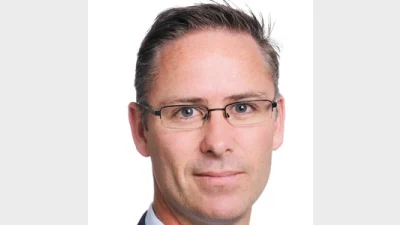What about the kids?



Most people believe private health insurance will be sufficient if their child suffers an illness, which is why it is important for advisers to educate clients about the things health cover does not cover, but life insurance does, according to Tim Browne.
The little girl, let’s call her Anna, had just celebrated her third birthday in fine style. A party with her friends and family complete with ice-cream cake, a visit from a fairy princess and of course, lots of pink.
Anna is a typical toddler, but over the next two years she faces a heart-wrenching battle to defeat the leukaemia she was diagnosed with shortly before her memorable birthday party.
Her story is not unique. We’ve all heard similar tales from within our community, and from friends and clients.
These days, this particular cancer has a fairly high success rate in children but it is a long road of treatments with extended bouts of hospitalisation.
And then there are many expected but unscheduled visits to the emergency room when the child’s temperature is high or they’re exposed to the normal cold and flu germs so common in winter.
Anna has a fairly positive prognosis, but in the two years it will take to get her back to health Mum has had to leave her part-time job, while Dad has to continue to be the main bread-winner.
Holidays, plans for renovations on their house and even their older child moving to private school for high school have been shelved as they struggle financially and emotionally while they fight the disease together as a family.
They’re doing whatever it takes to get Anna back to health. They’re doing whatever it takes to get the family through this difficult time. They’re doing whatever it takes pay the mortgage and the bills, despite less money coming in. They’re doing whatever it takes to stay positive, even during the bad days.
They’re doing exactly what you or I would do if we were faced with the same situation.
For the majority of us, protecting our family financially is a key consideration as, while no-one wants to imagine their child getting sick, the facts surrounding childhood illness are sobering.
According to the statistics, more than 558,000 children aged 0-14 were admitted to hospital in 2007-2008, and 200,000 children fall critically ill each year in Australia.
According to the Children’s Cancer Institute of Australia (CCIA), on average three Australian children die from cancer every week, making it the largest killer of children from disease.
Of course, there is a great deal of research and work done to improve treatments, with survival rates in Australia at about 75 per cent across all types of childhood cancer. This is a far cry from the rate prior to the 1960s, where childhood cancer was almost always fatal.
As advisers, broaching the subject of children suffering illness or injury can be difficult, but it is a scenario which should be spoken about and one which should form the basis of every good advice strategy.
If your client’s child suffers a traumatic event, it is natural for every parent to want to create a situation where any additional stress is minimised in order to be able to be there to support the child.
Being able to take time off work to care for a sick child, without having the insurmountable pressures of worrying about work or earning an income, is truly a gift. It’s one that is easily obtainable if some forward planning has occurred first.
Most people mistakenly believe that private health insurance covers their family if there is a medical problem. However, private health insurance only covers hospital stays and some medical or extras expenses. It doesn’t cover rehabilitation, alterations to the home or long-term nursing care.
It certainly doesn’t cover lost income from time away from work, or payments such as mortgage, school fees or other additional expenses which still accrue – whether your client’s child is sick or whether they can’t work while they’re taking care of them.
Tim Browne is general manager – retail advice, CommInsure.
Recommended for you
The Federal Court has dismissed a conflicted remuneration case brought by ASIC against the director of life insurance distributor Freedom Group, where Bali holidays and Vespa purchases were among sales incentives.
Policy and advocacy specialist Benjamin Marshan has left the Council of Australian Life Insurers after less than a year, having joined in March from the Financial Planning Association of Australia.
The declining volume of risk advisers meant KPMG has found a rising lapse rate for insurance policies arranged by independent financial advisers, particularly in the TPD and death cover space.
The Life Insurance Code of Practice has transferred from the Financial Services Council to the Council of Australian Life Insurers.











